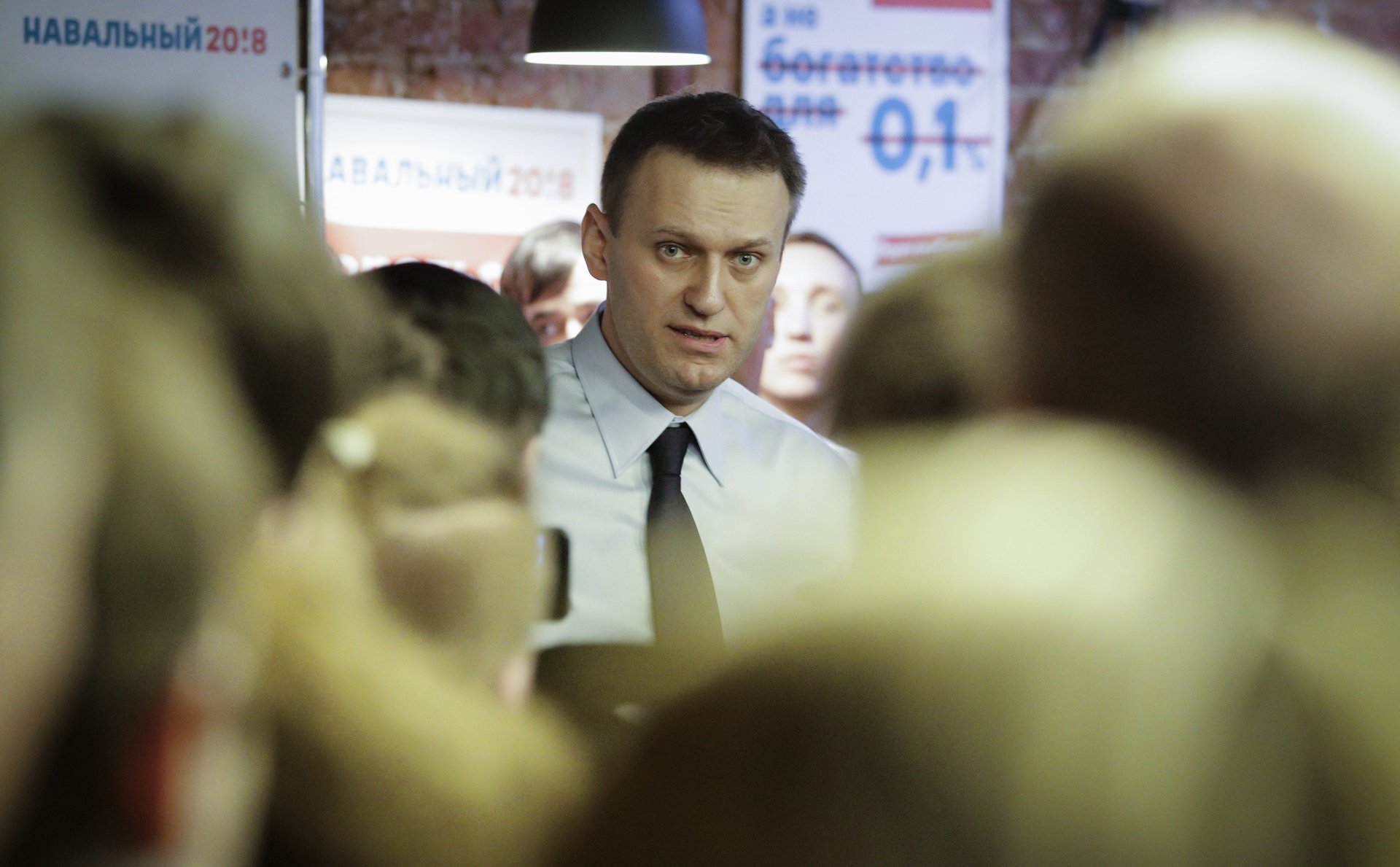Two of Vladimir Putin’s fiercest critics have been neutralized nearly simultaneously
If it doesn’t work the first time, just try it again. That seems to be the Kremlin’s answer to dealing with its most annoying opponents.


If it doesn’t work the first time, just try it again. That seems to be the Kremlin’s answer to dealing with its most annoying opponents.
The first is Aleksei Navalny, an anti-corruption campaigner who has been a thorn in president Vladimir Putin’s side for years. After organizing mass anti-Kremlin protests in 2011 and 2012, he ran for mayor in 2013 and got nearly 30% of the vote.
On Feb. 8 a court in the city of Kirov handed Navalny a five-year suspended sentence for embezzling $500,000 from a state timber company while he worked for the city’s mayor. The conviction is a repeat of one he was given in 2013, before the mayoral election. The Russian supreme court overturned that conviction after objections from the European Court of Human Rights about the quality of the trial—only to order a retrial last November.
Navalny told reporters (paywall) he doesn’t recognize the court’s decision, and will appeal. However, that could take time, and the suspended sentence would prevent him from running in the 2018 presidential race—likely against Vladimir Putin, although the Russian president hasn’t yet announced whether he’ll run. (It would be his fourth term in office.)
The other Kremlin critic is Vladimir Kara Murza. Less known than Navalny, he works for Open Russia, an organization founded by former oil tycoon and Putin enemy Mikhail Khodorkovsky. He lives part of the year in the US, where he has lobbied for the Magnitsky Act—a law intended to sanction Russian officials involved in the death of Sergei Magnitsky, a lawyer who died in a Russian prison after allegedly being tortured.
Last week Kara Murza fell gravely ill. His wife told RFE/RL on Feb. 6 that he had been diagnosed with ”acute poisoning by an undetermined substance,” and was experiencing the same symptoms as in 2015, when he suffered what he said was an attempted poisoning. He is now in a medically-induced coma.
Senator John McCain, a vocal Putin critic, spoke on the Senate floor on Feb. 7 about Kara Murza, whom he calls a friend. He said Kara Murza knew about the numerous political killings attributed to the Kremlin and Putin, including poisonings, but despite this decided to return to Russia after a recovery period in the United States. “Vladimir knew that Putin is a killer, and that he might very well be the next target,” he said.
Coincidentally, two days earlier, Fox News host Bill O’Reilly had called Putin a “killer” in a televised interview with president Donald Trump. That designation drew a demurral from Trump (“There are a lot of killers. We’ve got a lot of killers. Well, you think our country’s so innocent?”) and a protest from the Kremlin (“insulting and impermissible,” said Putin’s spokesman).
Concerned about the potential warming of relations between the Kremlin and the US under a Trump administration, a group of US senators from both parties is preparing a bill that would give Congress oversight and veto power if Trump decides to lift US sanctions on Russia.